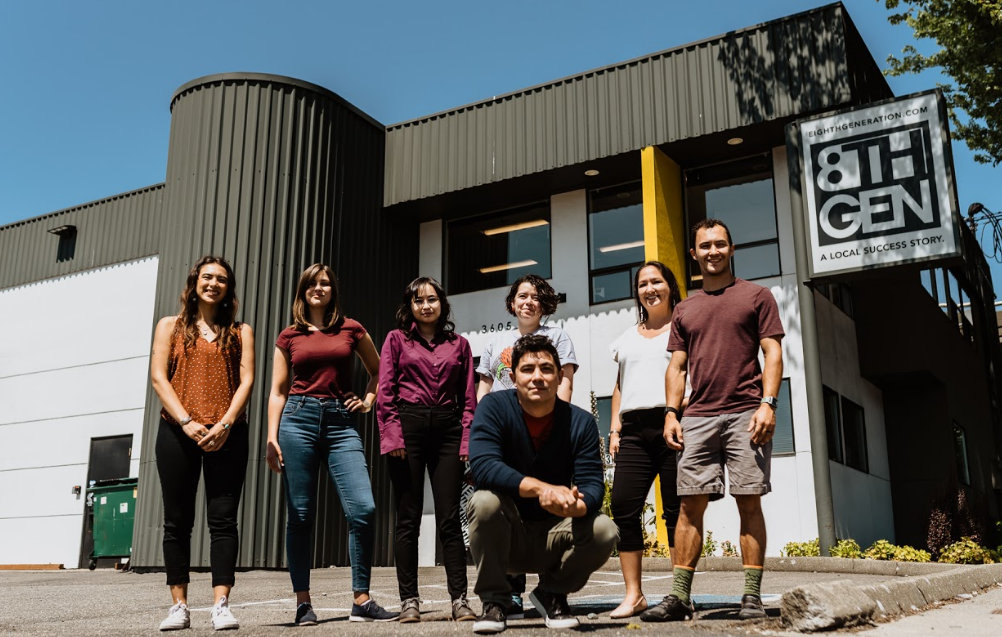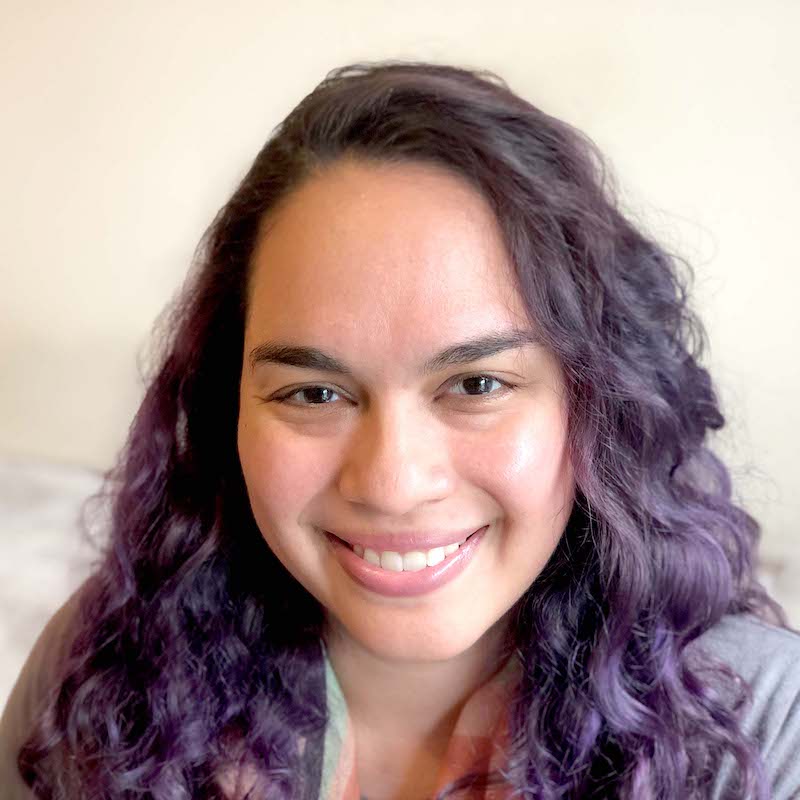
- Details
- By Monica Whitepigeon
SEATTLE — Want to support more diverse artists that embrace ethical practices? Want to show appreciation, not appropriation, for Native fashion? Then Eighth Generation has it covered.
The Seattle-based art and lifestyle brand, Eighth Generation recently announced the launch of its Urban Manufacturing Initiative (UMI), a collection of high-end wool textiles. Distinguished by a special gold label, the new line features scarves and baby blankets made with 100% Merino wool. These products are 100% Native designed and further expands the company’s in-house manufacturing.
“By adding a line of house-made textiles, we are setting an even higher standard for ethical products featuring cultural art and themes,” Chief Operating Officer Serene Lawrence (Anishinaabe/Hopi) said.
“We know consumers who appreciate and respect Indigenous art want their money to strengthen a tribally-owned company working with Native artists, rather than support corporations with a long history of cultural appropriation.”

Founded in 2008 by Louie Gong (Nooksack), the company has utilized an artist-centric approach to the business and proudly boasts the tagline “Inspired Natives, not Native-inspired.” His initial idea of providing custom designed shoes has since transformed the business into a platform for Indigenous entrepreneurs and artists to compete in the lifestyle industry. Gong, a mixed-identity Native, has been adamant about reclaiming narratives surrounding Indigenous people and supplying an alternative to corporate products that rely on stereotypical Native imagery.
“Each Eighth Generation product, especially the new Gold Label products, carries powerful stories about Native excellence into people’s homes,” said Gong.
“Cultural art and stories are like any natural resource. We have to be stewards of the resources we are using. If we just take and take like other companies, we risk destroying them.”
The UMI collection features designs by textile artists like Gail White Eagle (Muckleshoot and Chehalis), who designed a baby blanket and scarf called “First Light.” Earlier this year, White Eagle collaborated with the company to debut her “Rose Hip Warrior” blanket, which was based off of her weaving patterns.
She noted that working with Eighth Generation was different than other companies, “To have Eighth Generation take our designs and work with us through the process… It has really uplifted me. It’s been a great process.”
By engaging and building strong relationships with Native artists across the country, Eighth Generation has grown exponentially. It became the first Native-owned company to produce wool blankets and opened its flagship store in the historic Pike’s Place in 2015.
Last year, the Snoqualmie Tribe, a Washington state-based tribe, acquired Eighth Generation with the intent of strengthening the company’s mission and empowering more Native artists.
“The Snoqualmie Tribe prides itself on making values-based business decisions,” claimed Tribal Chairman Robert de los Angeles.
“We want to provide the largest and best possible platform for talented and driven Native American artists, and Eighth Generation’s Urban Manufacturing Initiative expands our opportunities to support them.”
Since the transition, Gong has remained the CEO and plans on continuing to use his expertise to educate Eighth Generation’s collaborators in the home décor and fashion industry. Through UMI, he and the tribe hope to reinvest in artists and provide access to priceless industry knowledge.
“We pursue multiple currencies here. It’s not just about making sales. We want to gather knowledge that has been inaccessible to us and share it with our people,” said Gong.
More Stories Like This
American Basketball Association Announces Native ABA InitiativeFour Winds South Bend Upgrades to Class III Gaming Casino
Native News Online Wins Two Awards from Native American Journalists Association
Wahlberg Brothers Are a Big Hit at Indian Gaming Tradeshow and Convention in Las Vegas
Native Gro Offers Tribes a ‘One-Stop Shop’ for Entering the Cannabis Industry
Help us defend tribal sovereignty.
At Native News Online, our mission is rooted in telling the stories that strengthen sovereignty and uplift Indigenous voices — not just at year’s end, but every single day.
Because of your generosity last year, we were able to keep our reporters on the ground in tribal communities, at national gatherings and in the halls of Congress — covering the issues that matter most to Indian Country: sovereignty, culture, education, health and economic opportunity.
That support sustained us through a tough year in 2025. Now, as we look to the year ahead, we need your help right now to ensure warrior journalism remains strong — reporting that defends tribal sovereignty, amplifies Native truth, and holds power accountable.
 The stakes couldn't be higher. Your support keeps Native voices heard, Native stories told and Native sovereignty defended.
The stakes couldn't be higher. Your support keeps Native voices heard, Native stories told and Native sovereignty defended.
Stand with Warrior Journalism today.
Levi Rickert (Potawatomi), Editor & Publisher

